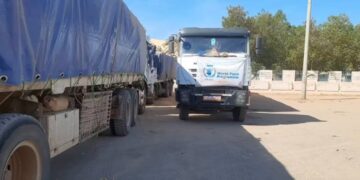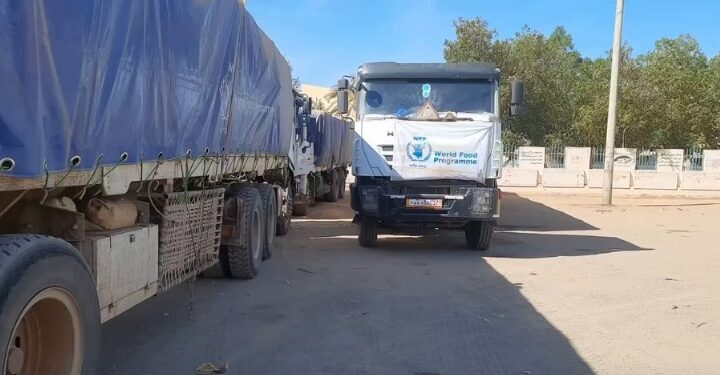By Enyichukwu Enemanna
Khartoum, the Sudanese capital, has taken delivery of food aid for the first time since April 2023, when civil war erupted in the country.
Trucks carrying the food aid arrived in southern Khartoum on Thursday, causing “tears of laughter and joy,” the BBC quoted a humanitarian worker as saying.
The United Nations says the crisis in the country has caused the “world’s worst hunger crisis,” arising from the fighting between the army and the paramilitary Rapid Support Forces (RSF) over control of the state.
Before the latest breakthrough, aid agencies had repeatedly cited security threats and roadblocks mounted by the warring sides as the major reasons why the delivery of aid has been difficult in the region.
The delivery was made possible after UN agencies and Sudanese community groups negotiated with the army and the paramilitary Rapid Support Forces to allow for free passage.
“There were tears, tears of laughter and joy and tears of a lot of effort and exhaustion from arranging this… it was quite a moment,” Ms Duaa Tariq, who works with the Sudanese humanitarian group Emergency Response Rooms, told the BBC.
The convoy consisted of 28 trucks, five of which were sent in by UNICEF.
The UN agency has also said it was able to deliver “life-saving” food and health supplies to Al Bashayer Hospital and other health facilities in Khartoum.
“Here in Khartoum, we are in desperate need of this aid. We’ve been waiting for it, and we’ve been trying so many ways and methods to go around this, but the only way to help reduce the famine effect in Khartoum right now is to receive this aid,” Ms Tariq said.
Earlier, an independent group of food security experts warned that Sudan is sliding into a “widening famine crisis.”
About half the population, 24.6 million people, is in urgent need of food aid, said the Integrated Food Phase Classification (IPC).
The army and RSF had jointly staged a coup in 2021, but a power struggle between their commanders plunged the country into civil war 20 months ago.
Repeated mediation efforts to broker peace and end the conflict between the army and the RSF have been largely unproductive.



































